
CFHR’s publications reflect its commitment to evidence-based advocacy, systemic reform, and accessible legal knowledge.
Our body of work includes academic journals, blogs, policy reviews, research reports, and training manuals that address pressing socio-legal issues in Pakistan and the region. These resources aim to inform policymaking, enhance public awareness, and support practitioners, civil society actors, and affected communities in advancing justice and equality.
The Human Rights Review is CFHR’s flagship academic platform, offering space for young scholars and legal professionals to share critical insights on human rights issues. It promotes rigorous legal analysis and thoughtful debate on themes such as gender justice, digital rights, environmental justice, and democratic freedoms. Complementing this is the Human Rights Blog, which features timely and accessible reflections on unfolding developments. It amplifies diverse voices, especially those of youth and grassroots advocates.
CFHR’s Policy Reviews offer targeted analysis of systemic gaps within Pakistan’s legal and policy frameworks. These reviews guide legislators, legal practitioners, and institutions by presenting evidence-based recommendations that address entrenched inequalities and socio-economic harms. Each review explores the intersectional challenges behind these issues and proposes actionable reforms to strengthen rights protections.
Our in-depth research reports cover a broad spectrum of human rights concerns. These range from women’s marriage rights and global climate change litigation trends to digital discrimination and the regulation of firearms. Grounded in legal analysis and empirical data, these publications are used by stakeholders who seek to understand and address the structural causes of injustice and exclusion in Pakistan.
In addition to research and analysis, CFHR produces handbooks and manuals designed for frontline actors such as trainers, educators, officiants, and civil society organisations. These practical tools translate complex legal information into accessible formats and support capacity-building for rights-based service delivery and advocacy, particularly within marginalised communities.
Across all its publications, CFHR remains committed to producing high-quality, impactful knowledge that not only informs but also drives meaningful and lasting change.
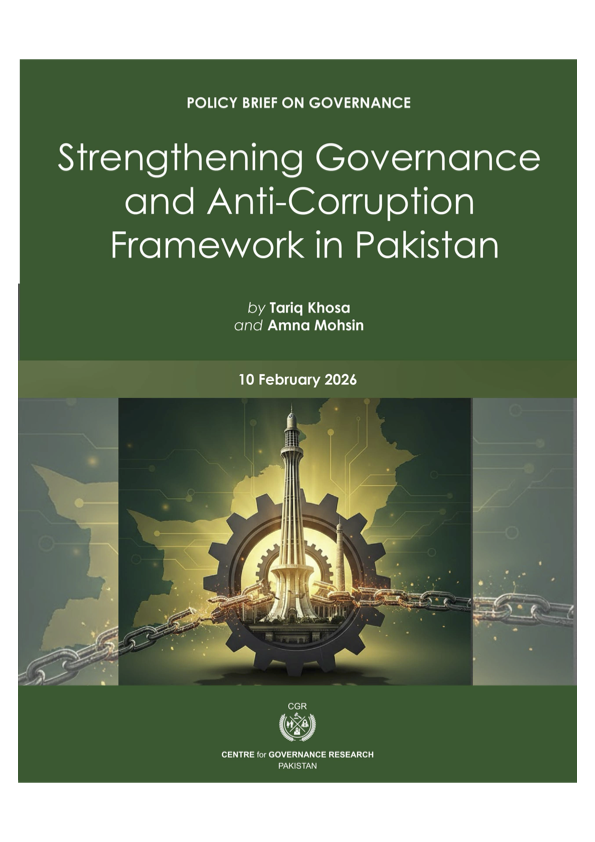
Strengthening Governance and Anti-Corruption Framework in Pakistan: A Civil Society Perspective on IMF’s Governance and Corruption Diagnostic
This policy brief is developed in partnership with Centre for Governance Research. The brief frames Pakistan’s governance and corruption situation as a systemic constraint on economic recovery and inclusive growth, requiring comprehensive reforms in fiscal management, regulatory transparency, accountability systems, and institutional integrity. Civil society is positioned as a key partner in sustaining governance reforms.
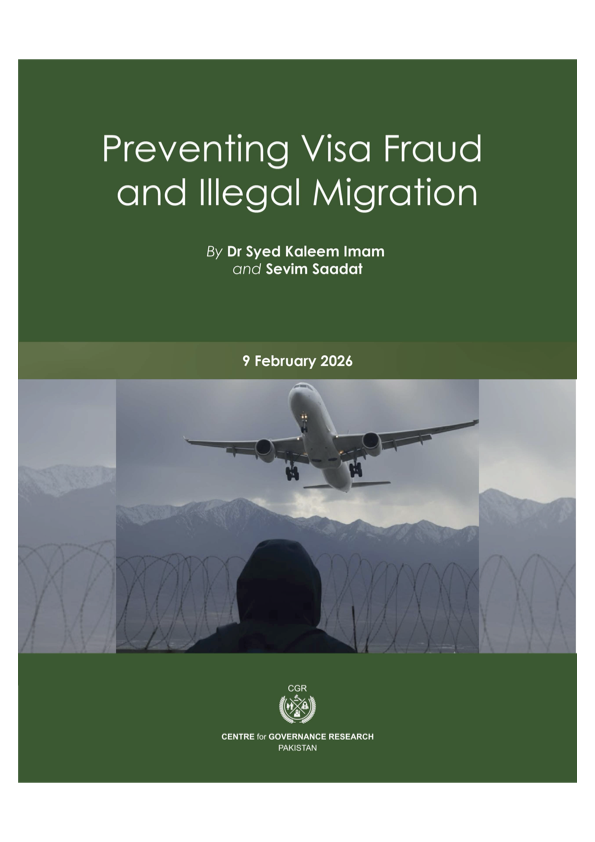
Preventing Visa Fraud and Illegal Migration
This policy brief is developed in partnership with Centre for Governance Research. The policy brief examines the growing challenge of visa fraud and illegal migration in Pakistan, driven by weak oversight, limited verification systems, and exploitation by unregulated intermediaries. It highlights how fraudulent documentation and irregular migration routes undermine national security, harm migrants, and damage Pakistan’s international credibility. The brief calls for stronger inter-agency coordination, improved digital and biometric verification, stricter regulation of travel agents, and greater public awareness to prevent fraud and promote safe, legal migration.
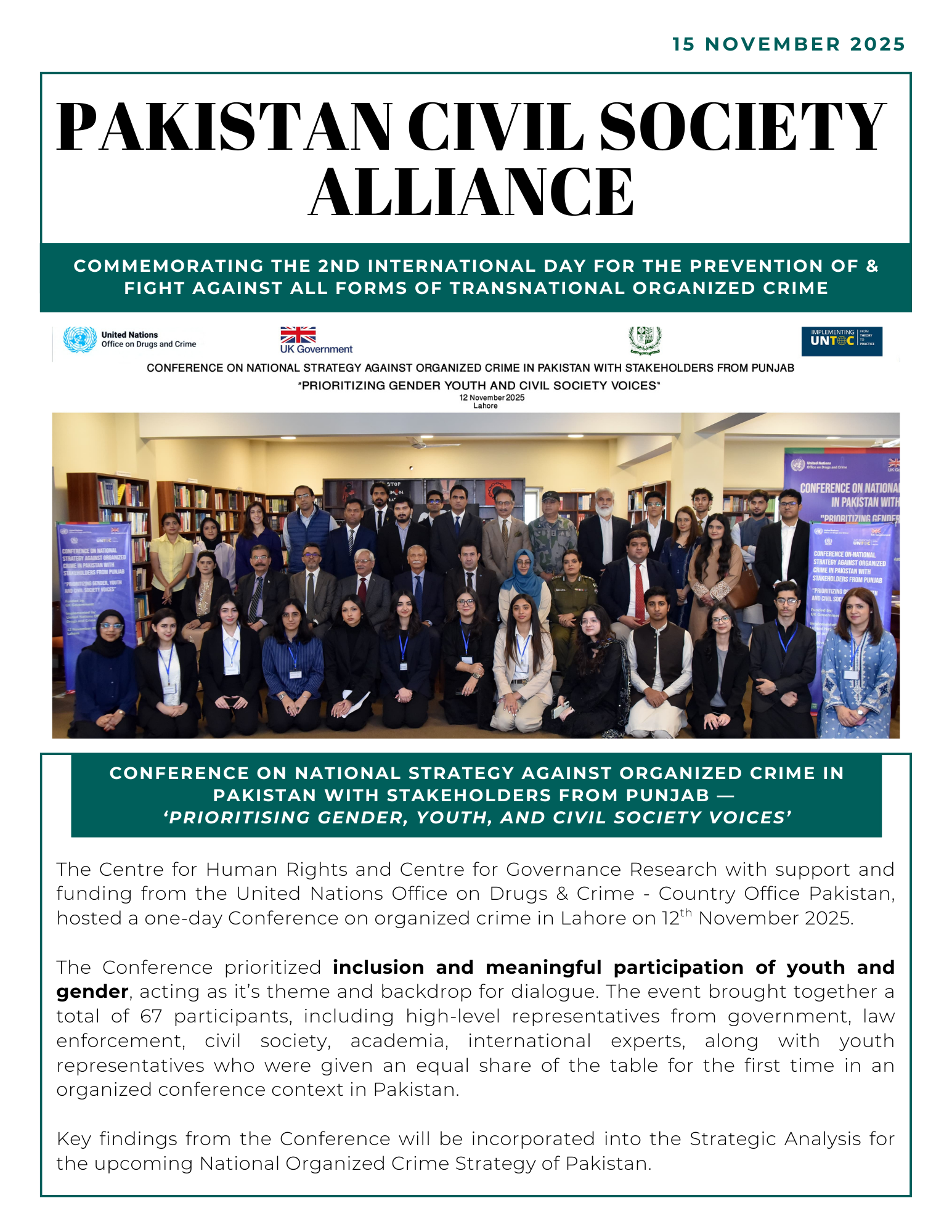
Commemorating the 2nd International Day for the Prevention of & Fight Against All Forms of Transnational Organized Crime
Event report on CFHR, Centre for Governance Research and the United Nations Office on Drugs & Crime - Country Office Pakistan one-day Conference on organized crime in Lahore on 12th November 2025.

A Dual-faceted Deterrence Model: Combatting GBV through Conviction Certainty and Rehabilitation
Shahyan Naeem highlights Pakistan’s failure to protect women amid rising gender-based violence. Weakening punishments without boosting conviction rates or offender rehabilitation won’t deter crimes. A dual approach targeting legal reform and cultural change is vital for real progress.
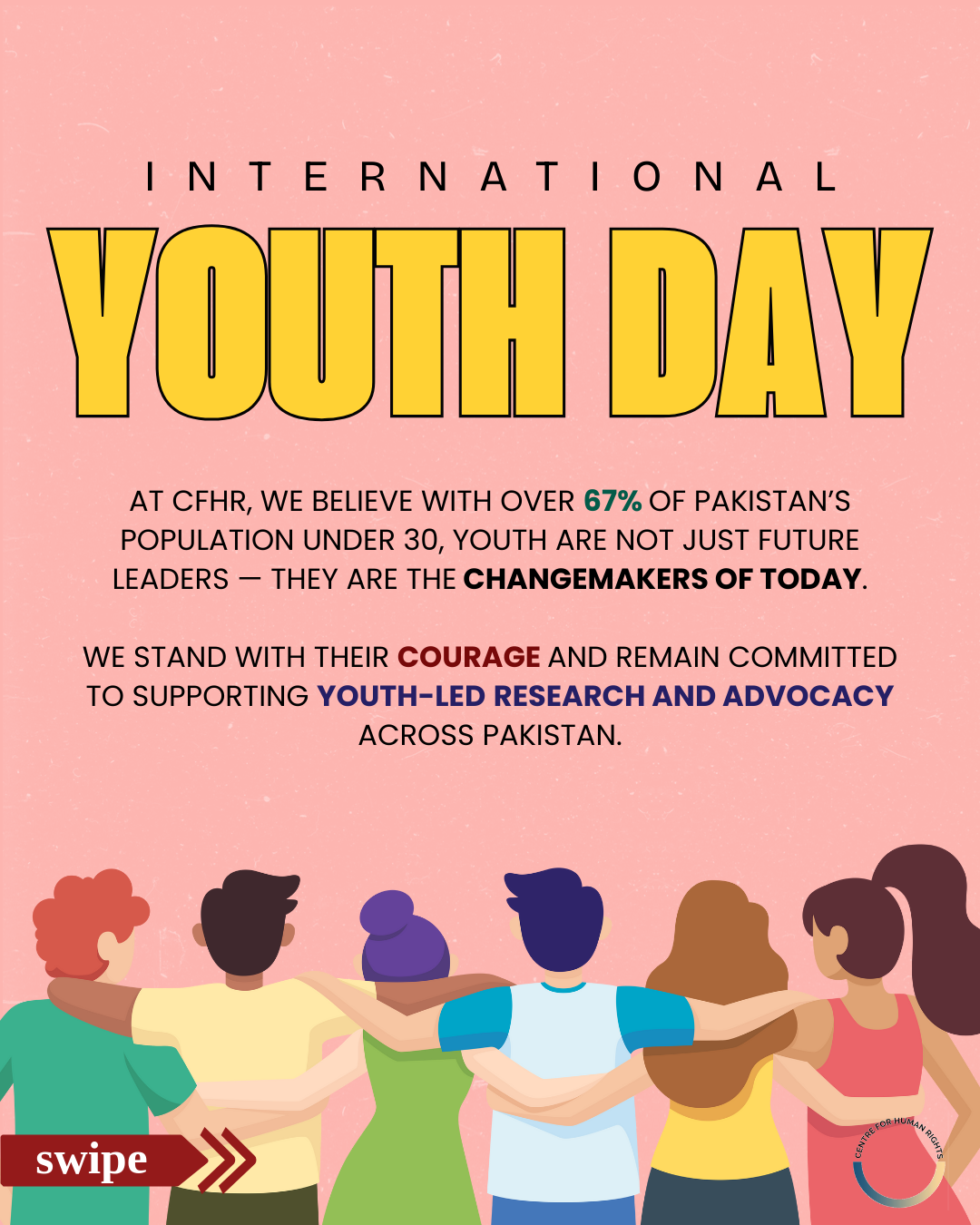
International Youth Day 2025
On International Youth Day 2025, CFHR commemorated Pakistan’s most powerful force for change — its youth. With over 67% of our population under 30, young people are not waiting for tomorrow; they are reshaping justice, rights, and equality today.
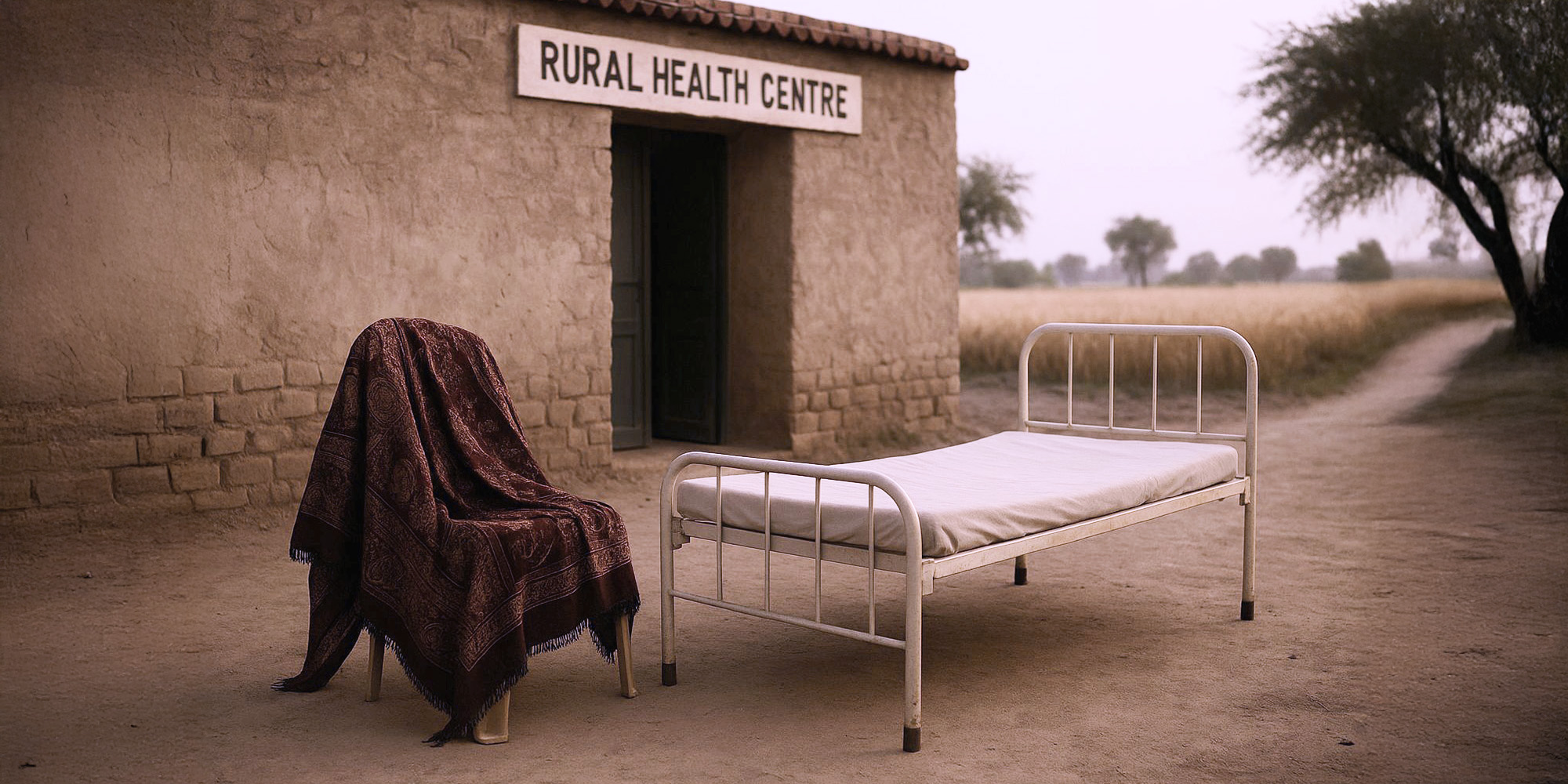
Beyond Infrastructure: Unpacking Maternal Mortality in Punjab
Mahru Hasan Syed analyzes maternal mortality in Punjab, focusing on socio-cultural norms, gender dynamics, and health literacy, while advocating for rights-based reforms, community empowerment, and policy changes.

Newsletter 2025 - Q1
Welcome to the first edition of CFHR’s Quarterly Newsletter, marking a new chapter in how we share our journey, impact, and vision.

Annual Report 2024
CFHR's 2024 Annual Report showcases achievements in human rights across Pakistan, from legal reforms and policy advocacy to community campaigns like "Kaante Na Lagao," while advancing marriage equality, transgender rights, and youth empowerment initiatives.

Training & Learning Module WMRs in Pakistan
CFHR empowers educators with a comprehensive toolkit to teach women’s marriage rights through the Nikahnama via lessons, activities, and legal guides.
.avif)
Training Needs Assessment - Summary Findings Report WMRs
The report explores youth knowledge and attitudes on women’s marriage rights, revealing legal gaps and social norms from over 1,300 surveyed nationwide.
Local Action, Global Impact
We work across Pakistan, driving legal reform, advocacy, and policy change to protect human rights and empower communities.
